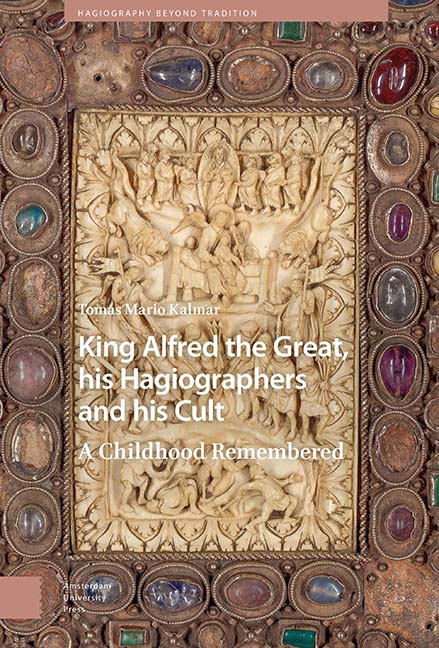2 - Remember the Pope
Published online by Cambridge University Press: 29 November 2023
Summary
So bleibt das Geschehen in all seiner sinnlichen Kraft doch immer Gleichnis, verhüllt und deutungsbedürftigt. (What happened, with all its concrete force, remains forever parabolic, cloaked and needful of interpretation.)
— Erich AuerbachCommon opinion has it that the plot of a narrative imposes a meaning on the events that comprise its story level by revealing at the end a structure that was immanent in the events all along.
— Hayden WhiteAbstract
In the nineteenth century Protestant historians expunged hagiography. But for Aelred of Rievaulx history was contained by hagiography. His Cistercian version of the popular fable that the infant Alfred was anointed king by the Pope in Rome embedded Alfred in hagiographic time liberated from chronology: Biblical typology bound what the Pope foresaw in Alfred’s destiny to what Samuel foresaw in David’s. And in 1901 Plummer believed the 853 papal anointing was not, in fact, royal, and that Alfred psychologically misinterpreted it as typologically prefiguring his royal adulthood. By substituting psychological for spiritual understanding, Plummer canonized the Chronicle as prime reliquary for the Protestant cult of the historical Alfred, since its annal for 853 contains this authentic Anglo-Saxon relic of Alfred’s psychology.
Keywords: Cistercian hagiography, psycho-history, autohagiography, Herbert Thurston, Quipu, childhood memory
Hagiography
A holy city. A high priest. An island kingdom. Its king. His son. Five atoms from the universe of legend. Their interactions form a molecule, the organic nucleus of a fable about a king who sends his son on a long pilgrimage to the holy city to be blessed by the high priest.
By labeling this a fable I intend to be open to the possibility of finding it anywhere on a spectrum from dream to folktale to cosmic myth, whether or not it could ever narrate something that actually happened.
At the low end, let it be a dream that opens a story collected from the folk by the Brothers Grimm: Es war einmal ein König der träumte er sende seinen Sohn in die heilige Stadt um vom Hohenpriester gesegnet zu werden. Once upon a time there was a king who dreamt that he would send his son to the holy city to be blessed by the high priest.
- Type
- Chapter
- Information
- King Alfred the Great, his Hagiographers and his CultA Childhood Remembered, pp. 69 - 94Publisher: Amsterdam University PressPrint publication year: 2023

